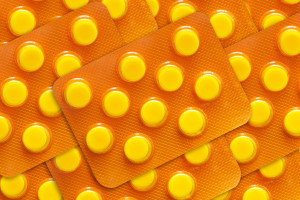Denmark and France have already banned it. It destroys the liver and kidneys.

Author: KKR • Source: Rynek Zdrowia • Published: June 22, 2025 10:55
The new regulations are designed to protect public health and the environment. For many industries, this means a rapid change in technology and raw materials. The European Union is preparing a ban on the use of PFAS - toxic chemicals found in thousands of everyday products, including takeaway food packaging.
- The European Union is preparing a ban on the use of PFAS – toxic chemicals found in thousands of everyday products.
- PFAS do not disappear - neither from the human body nor from soil or groundwater
- The European Chemicals Agency (ECHA) emphasises that their long-term presence in the environment leads to accumulation, and their toxicity is associated with, among others, liver and kidney damage, hormonal disorders and cancer.
The European Union is finalizing a draft regulation that could radically change the consumer market . It is about banning the use of PFAS – a group of chemicals known as “forever chemicals” because of their resistance to decomposition. These substances have been used for decades in everyday products: from clothing, through dishes, to cosmetics, electronics and construction materials.
The problem is that PFAS do not disappear – neither from the human body nor from soil or groundwater . The European Chemicals Agency (ECHA) emphasizes that their long-term presence in the environment leads to accumulation, and their toxicity is associated with, among other things, liver and kidney damage, hormonal disruption and cancer . Of particular concern is the impact of PFAS on the development of testicular cancer and thyroid disease.
Until recently, it was assumed that regulations in this area would not appear until after 2026. However, at the end of 2024, the EU Commissioner for the Environment, Jessika Roswall, announced that work would be accelerated. Brussels has recognized the problem as a priority, and new regulations are currently being consulted with member states.
What are PFAS?Per- and polyfluoroalkyl compounds (PFAS) are synthetic chemicals that are resistant to water, fats, high temperatures and friction. As a result, they have found wide application in sportswear, non-stick cookware, fire extinguishing foams and electronics, among others.
But the same durability that was once an advantage is now a source of danger. The carbon-fluorine bonds that make them stable are among the strongest in organic chemistry. This makes PFAS virtually non-biodegradable, making their removal from the environment difficult and expensive .
The planned ban will affect thousands of consumer products. For many industries – especially cosmetics, textiles, electronics and household appliances – it will mean having to look for alternative raw materials. Companies will have to adapt their recipes, technological processes and supply chains.
Some member states, such as Denmark and France, have already introduced their own restrictions on PFAS, including banning their use in waterproof clothing and hygiene products. Similar regulations are now set to cover the entire EU.
The EU does, however, provide exceptions for sectors where PFAS are currently difficult to replace – such as automotive, aviation, energy and fire protection – where the ban is to come into effect later or with a limited scope.
Here we most often find PFAS:
- foundations and powders,
- waterproof mascaras and eyeliners,
- creams with UV filter,
- lipsticks, lip balms,
- antiperspirants, shaving foams,
- paper packaging for fast food,
- take-away packaging,
- greaseproof trays and baking paper,
- microwave popcorn bags,
- some PET bottles and food foils,
- pans and pots with Teflon (PTFE) coating,
- "non-stick" baking tins,
- silicone kitchen accessories (cheaper, low quality),
- raincoats and sports jackets with DWR membranes,
- stain-resistant tablecloths, curtains and carpets,
- technical and work fabrics,
- technical greases and synthetic oils,
- car parts resistant to temperature and chemicals,
- sealing materials and anti-corrosion coatings,
- products for impregnating fabrics and shoes,
- some adhesives and mounting tapes.
Copyrighted material - reprint rules are specified in the regulations .
rynekzdrowia













